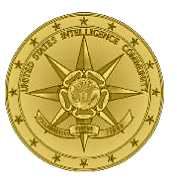Intelligence Community Resume Writing Best Practices
 Creating a federal resume that brings your qualifications to life and shows that you are a perfect fit for the job can be a challenge. The following are helpful tips to remember when preparing your resume.
Creating a federal resume that brings your qualifications to life and shows that you are a perfect fit for the job can be a challenge. The following are helpful tips to remember when preparing your resume.
Preparation is Key
All of us have asked ourselves “What are my interests?” or, “How can I serve our country and make a positive difference?” It’s important that you do some research on the IC Agencies that you may want to support as interns or as a full time employee. Once you have done that and you are ready to look for assignments, identify the positions you are interested in and review the requirements carefully. Gather information and begin to build a description of your knowledge, skills and experiences so you can highlight them in your resume. Carefully follow all instructions listed in the job announcement.
Tailor Your Documents to the Position
One size never fits all. As you apply for jobs, tailor your resume to the positions’ requirements. Study the job or internship opportunity announcement and emphasize the parts of your work history that match the qualification requirements listed there. It is important to portray your knowledge and skills as a match to the requirements of the position and demonstrate the ability to do the job. This is easy to do when you include your results, achievements and accomplishments. Minimize the use of technical jargon or specialized terminology in your resume.
Unlike resumes used in the private sector, federal resumes require additional information. For each past job, give the standard information found in most resumes. Your federal resume should include all listed requirements, including the following:
- Job announcement number, job title, and grade of the job for which you are applying
- Your full name, mailing address, day and evening phone numbers and home e-mail
- Country of citizenship
Security Clearance
If you have been granted a government security clearance, you may acknowledge that you are cleared and list the granted clearance and access as appropriate. You may also state that you had a Special Background Investigation (SBI) and/or polygraph along with date of the polygraph.
Work Experience
List your full-time and/or part-time, professional work history. Start with your most current and work backward. The following MUST be included:
- Position and title
- Name of organization and location (city/state)
- Start and end date (MM/YYYY)
- Salary (per hour/month/year)
- Hours per week, full-time or part-time
- Supervisor (or HR rep who can verify employment) – name and phone number
- Brief description of duties, and identify your major roles, responsibilities and accomplishments
Certifications/Achievements (Academic or Professional)
List any certifications or licenses you currently hold. The following MUST be included:
- Name of the certification
- Organization that granted it and location (city/state)
- Date(s) the certification is in effect (month /year)
Training (Academic or Professional)
List any formal training including accreditations. The following MUST be included:
- Name of the training and location (city/state)
- Number of hours of training
- The sponsoring organization
- Start and end date of the training (month/year) Professional Skills
List skills related to your education, those acquired throughout your career, and any personal skills that you want to highlight. Include, if applicable:
- Foreign language skills with the skill level (novice, intermediate, or advanced) in reading and/or writing
- Technology skills
Education
Start with your highest-level degree and work backward. The following MUST be included:
- Type of degree and major
- College or university, city/state and zip
- Date of graduation or diploma (month/year)
- GPA
- Honors or awards, if any
A Final Look
Remember to avoid misspelled words and grammatical errors. Once you have spell-checked your resume, take a good look at its overall appearance. Is it appealing and easy to read? Is there enough white space? Are the margins appropriate? Have the headings, font and formatting style been used effectively? Keep in mind that your resume is an employer's first impression of you. Make sure it makes the best one possible.
Finally, carefully review ALL document requirements provided in the job announcement – some
Departments or Agencies may require additional documents. In addition to a resume, a cover letter, transcripts, or other information may be required.
To apply for careers in the Intelligence Community visit: